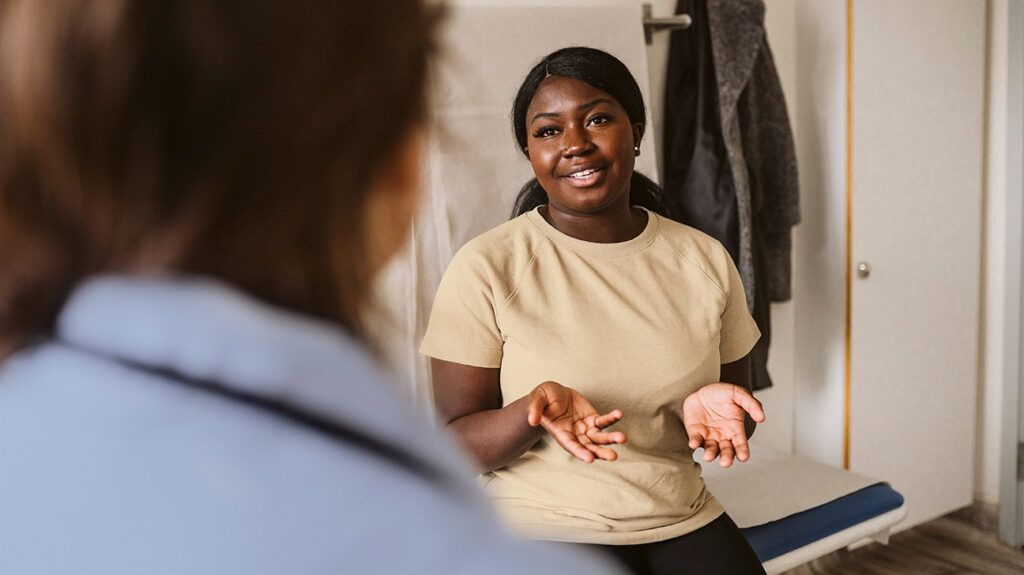Black women are often misunderstood and undertreated by medical professionals. Conversations and reeducation can change these outcomes.

We as Black women are being shorted by a system and medical establishment that either doesn’t understand us or is hogtied by racism.
Some will say that Black women in the United States have experienced substantial improvements in health during the last century. But if that’s the case, why do gaping health disparities persist?
Our research shows that many health professionals fail to take Black women’s concerns seriously and undertreat their pain.
According to the
Additionally, the personal experience of racism can cause chronic stress that has debilitating health ramifications.
A Black woman with breast cancer is more likely to have a more aggressive cancer if the woman was born in a Jim Crow state. If we’re Black trans women, we’re highly likely to be victims of violence as we made up most of the 57 trans and gender nonconforming people murdered by hate in 2021.
Undefeated by this knowledge, Black women continue to have faith in our ability to effect change. We persevere, resist, and make critical contributions to our families and communities that benefit everyone’s well-being.
It’s imperative that we honor the contributions of Black women that were not made willingly.
We remember the enslaved patients who were experimented upon without anesthesia by Dr. James Marion Sims, the so-called “Father of Modern Gynecology.” We remember Henrietta Lacks, the “Godmother of Virology and Biotech,” whose cervical cancer cells were harvested and replicated without her consent as she lay terminally ill in hospital.
And we celebrate those Black women who contributed by devoting their lives to improving public health.
We recognize Mary Beatrice Davidson Kenner, who invented the sanitary belt and gave people who menstruate new freedoms in society, but whose product took 30 years to come to the market due to racism and sexism.
We honor Dr. Joycelyn Elders, who blazed a trail as the first Black person to be appointed surgeon general, giving voice to forgotten and neglected communities dealing with teenage pregnancy.
There are so many unnamed Black women who have led untold efforts to mold a better life for themselves, their families, and their communities. Together, today, we can do more for them and for each other than we ever have been able to before.
The National Association of Chronic Disease Directors (NACDD), which represents state and territorial health chronic disease prevention programs, and the Black Women’s Health Imperative (BWHI), the first national nonprofit organization created by Black women to help protect and advance the health and wellness of Black women and girls, have announced a $2.6 million cooperative agreement.
One of the primary projects in this cooperative agreement, which is funded through the CDC and in collaboration with the NACDD, is to improve culturally tailored distance learning and the use of BWHI’s mobile app in prediabetes prevention among Black women.
This work is urgently needed. According to the Department of Health and Human Services’ Office of Minority Health, about 13% of Black women were diagnosed with diabetes in 2018, which can be prevented or controlled with simple changes to diet and exercise in many cases.
Racism and discrimination in healthcare are real and generational. Agency workers, clinic staff, healthcare providers, and community workers can help us bring about equitable and permanent fixes to the disparities we face. They can begin this lifesaving work by being open to and enabling the identification and reprogramming of the harmful and inaccurate implicit biases that harm Black women.
Together, NACDD and BWHI are committed to helping our Black citizens write a new chapter in American history for their health — one where we all thrive together. The NACCD and BWHI are ready to start. We hope you are too.
——-
Robyn Taylor, MBA, is a senior director for health equity at the National Association of Chronic Disease Directors (NACDD). Angela F. Ford, PhD, MSW, is chief program officer for the Black Women’s Health Imperative (BWHI).